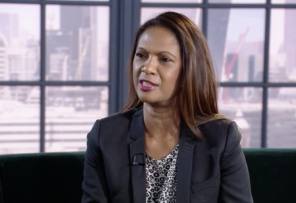

The government has set out a three way strategy for financial services post-Brexit, evolving around innovation, resilience and the open market.
Speaking at a dinner at Mansion House last night (21 June), chancellor Philip Hammond vowed Britain would remain open for global business.
The government has launched a number of initiatives, including a Global Financial Partnerships Strategy, which will bring together governments, regulators and industry to build an enhanced framework for cross-border financial services, facilitating access to global markets and “positioning the UK as the gateway of choice”.
It has also created a financial services skills taskforce led by former City Minister Mark Hoban, which will seek to understand the changing nature of financial services and respond to find opportunities for the next generation.
Mr Hammond warned the nature of jobs in the City was changing as the digital revolution, artificial intelligence, and automation entered into the fray. But this doesn’t mean mass unemployment, he said.
He said it was important for industry, regulators and the government to work together to build the most innovative, pro-growth environment in the financial services world.
The regulator’s sandbox, the Open Banking initiative and the government’s new British Patient Capital fund, a £2.5bn public investment as part of its plan to unlock £20bn of finance for UK growth companies over the next decade, should all contribute towards this.
But he said this did not mean cutting down on regulation.
Mr Hammond said the government would support regulators and the central bank in making the UK the “safest and most transparent place to do business”
He announced reforms of the Bank of England’s financial framework, including a £1.2bn capital injection into its balance sheet to reinforce its resilience, and its ability to meet its monetary and financial policy objectives in the future.
In a separate speech Mark Carney, the Bank’s governor, said the economy was reorganising into a series of distributed peer-to-peer connections across powerful networks, where “data is the new oil”.
He said the Bank was adapting to this challenge and is already creating the new hard and soft infrastructure that the new finance will require.
For instance it has streamlined its approach to authorising banks to make it easier for banks with innovative business models to be approved.
Together with the FCA it is exploring how artificial intelligence and machine learning could be used to make the reading of its rulebooks easier, the reporting of regulatory data quicker and the analysis of that data more efficient.
And the Bank is considering how regulation may need to change with the investment needs of the new economy, including new approaches to risk models and secured lending in a world of intangible capital and data-based finance, he said.
Mr Hammond said the government will also build on its initiatives around green investment, with ambitions to “lead the world in financing this investment”.
There are currently 80 green bonds raising more than $24bn across seven currencies in the UK.
To this end the government is establishing a Green Finance Institute in London, jointly funded by government and the City of London for firms from across the world to access as a one-stop-shop for climate science, and capital.
The Chancellor said to succeed in the future, the country must remain connected to the world, including the emerging markets.
He said: “Our vision is for a new set of partnerships combining new tools, like financial services trade agreements, and existing ones, like our financial dialogues positioning the UK as the most global financial services market in the world.
“Because “Global Britain” is not just a strategy for Britain’s economic future, it’s a statement about what kind of people we are - and about the economy and the society we are seeking to build.”
Separately, the Treasury and BoE have agreed a new Memorandum of Understanding, which sets out the financial relationship between the two institutions.
They will put in place information-sharing arrangements to allow transparency and cooperation between the two entities and put in place a capital framework to ensure the Bank has the financial resources needed to deliver its objectives.
carmen.reichman@ft.com



